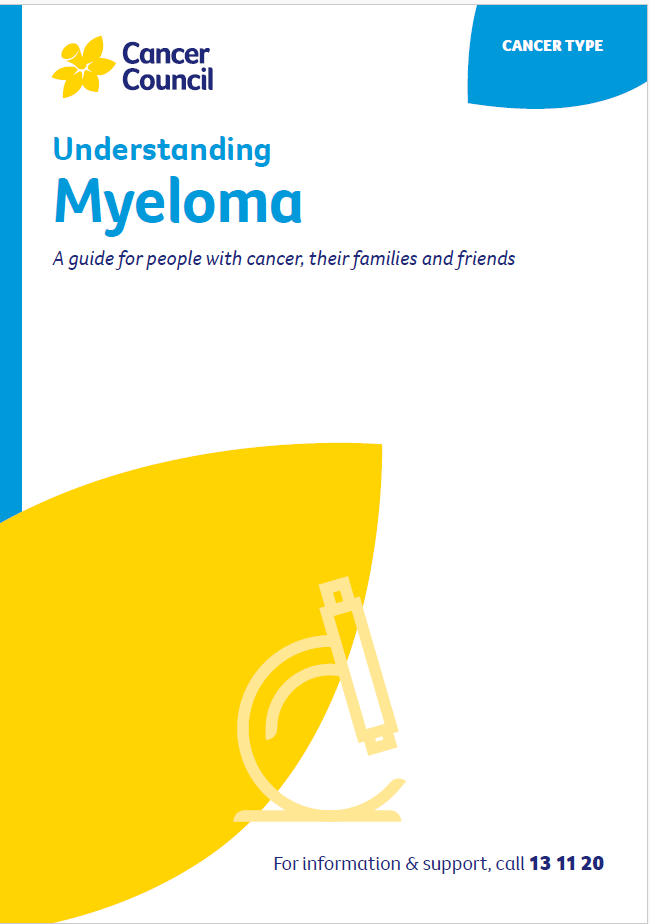Stem cell transplant for myeloma
You may be offered a stem cell transplant. This is when diseased blood cells are destroyed by high-dose chemotherapy and replaced with blood stem cells. This is also known as high-dose therapy and stem cell rescue.
Learn more about:
How does it work?
It aims to destroy as much remaining myeloma as possible and increase the length of the plateau phase (remission). Usually your own stem cells are used for this procedure, which is called an autologous transplant. If donor stem cells are used, it’s an allogeneic transplant.
An autologous transplant is done in several stages. Before the process begins, you have induction treatment to put the myeloma into a plateau phase. The stem cells are then removed and frozen. Next, you have high-dose chemotherapy, followed by the return of your stem cells. Read a detailed description of this process.
Who is it suitable for?
Although a stem cell transplant can help some people, it is not suitable for everyone. The high-dose chemotherapy that is given before the transplant can have a lot of side effects. To work out whether a stem cell transplant is suitable for you, your haematologist will consider your general health, age, the type of myeloma you have, how fast it is growing and how it responds to treatment. The risks and benefits will be discussed with you.
Stem cell transplants are available only at some hospitals, so you may need to be referred to another hospital. The entire procedure, including recovery, can take months or up to a year.
→ READ MORE: Steps in an autologous stem cell transplant
Podcast: Making Treatment Decisions
Listen to more episodes from our podcast for people affected by cancer
More resources
Dr Ian Bilmon, Haematologist, Westmead Hospital and The Sydney Adventist Hospital (Clinical review); Martin Boling, Consumer; Catherine Bowley, Specialist Myeloma Nurse, Myeloma Australia; Dr Samuel Dickson, Radiation Oncologist, Calvary Mater Newcastle; Rachelle Frith, Clinical Nurse Consultant, Haematology, Prince of Wales Hospital; Dr Wojt Janowski, Haematologist, Calvary Mater Newcastle; Yvonne King, 13 11 20 Consultant, Cancer Council NSW. We would like to thank all the health professionals, consumers and editorial teams who have worked on current and past editions of this title.
View the Cancer Council NSW editorial policy.
View all publications or call 13 11 20 for free printed copies.

